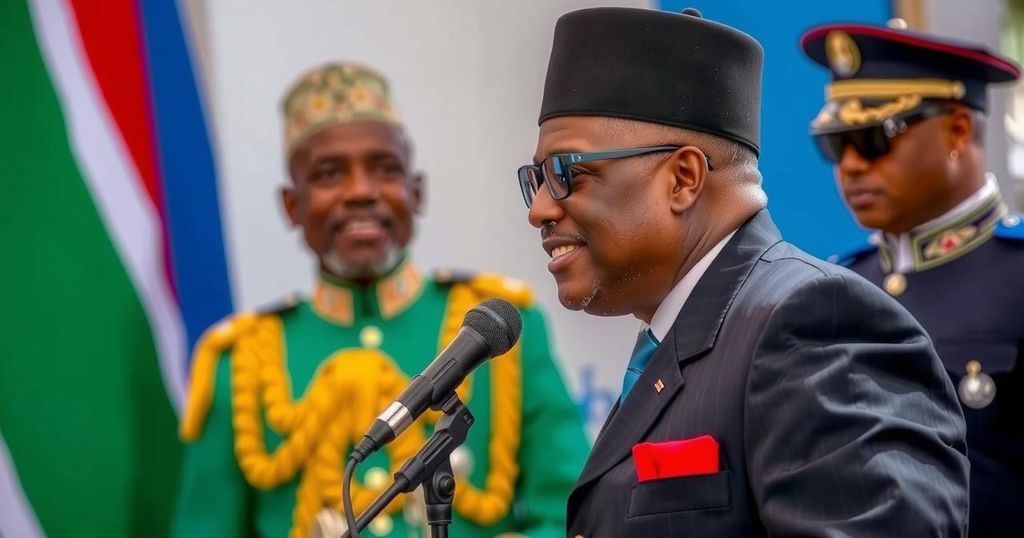Botswana’s New President Duma Boko Sworn In Amid Calls for Change

Duma Boko has been sworn in as Botswana’s new president following a decisive electoral victory, ending nearly 60 years of BDP rule. In his address, Boko emphasized a united commitment to change and outlined ambitious plans for economic reform. The event drew significant local and international attention, showcasing a hopeful political future for Botswana and the region.
Botswana has officially welcomed its new president, Duma Boko, who was sworn in on Friday after his party’s overwhelming victory at the recent elections. Boko, aged 54, assumed office in a ceremony attended by thousands, marking a significant political shift as his Umbrella for Democratic Change (UDC) displaced the Botswana Democratic Party (BDP), which had governed for nearly six decades. In his inaugural address, Boko emphasized the importance of the electoral process and declared, “Together, we usher in a new political dawn,” reflecting the hope for transformative governance. The UDC secured 36 seats in parliament while the BDP only garnered four, indicating a substantial change in the political landscape of Botswana. Boko’s predecessor, Mokgweetsi Masisi, acknowledged the election outcome two days post-voting and was present at the ceremony, where he received mixed reactions from attendees. Boko commended Masisi’s leadership, stating that his role in facilitating the democratic process would be remembered. With young voters constituting a significant portion of the electorate, many rallied for change, driven by rising unemployment and economic challenges, particularly due to declining diamond sales. The impressive voter turnout of 80 percent underscores the citizens’ commitment to democracy and governance. Boko committed to ambitious goals, including job creation and housing development, while also aiming to stabilize diamond industry relations and diversify the economy. The inauguration attracted foreign dignitaries, including Zimbabwe’s opposition leader Nelson Chamisa, who expressed optimism for broader political change within Africa. Chamisa underscored the importance of new leadership across the continent, emphasizing a collective ambition to uplift Africa as a global leader. Botswana’s political shift highlights a significant moment in its democratic journey as the new administration prepares to tackle pressing national issues while demonstrating a commitment to inclusive governance.
Botswana has a historical legacy of stable democracy and effective governance since its independence from Britain in 1966. The country predominantly relied on its diamond mining sector, which has been a considerable source of revenue. However, over the years, discontent with the ruling BDP has grown due to rising unemployment and allegations of mismanagement. The recent elections marked a dramatic turnaround, reflecting the aspirations of a youthful electorate eager for transformation and accountability.
The inauguration of Duma Boko as Botswana’s president signifies a pivotal moment in the nation’s democratic evolution. With a mandate to implement transformative policies, Boko’s administration reflects the electorate’s call for change and responsiveness to socioeconomic challenges. The presence of international leaders at the event also underscores regional hopes for renewed democratic vigor across southern Africa.
Original Source: www.barrons.com







